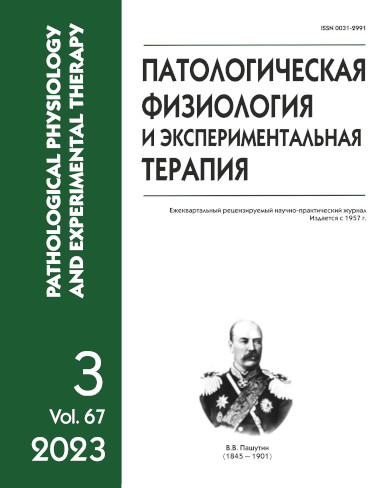Progressive dysfunction of the immune system as a factor preventing recoverable regeneration of the liver in chronic fibrosing diseases
Abstract
This review discusses features of progressive immune dysfunction in chronic fibrosing liver diseases to identify criteria for predicting the severity of liver (L) damage and the effectiveness of corrective therapy. Despite differences in the etiopathogenesis of chronic L disease, the development of L fibrosis and cirrhosis is associated with similarly progressing manifestations of dysfunction of innate and adaptive immunity components, as well as changes in the bone marrow, the central organ of immunogenesis. These changes result from chronic intoxication, bacterial translocation from the gut, impaired metabolism, and progressive systemic inflammation. Already at the early stage of L fibrosis activation, innate and adaptive immune cells become chronically hyperactivated, and subpopulations with profibrogenic immunosuppressive properties emerge (subcompensation stage). With the progression of hepatic destructive processes (evolution of fibrosis to cirrhosis), the immune cells display signs of functional exhaustion, pronounced cytokine imbalance, and persistent immunosuppression (decompensation stage or “immune paralysis”). In this case, immunosuppression becomes a factor of increased susceptibility of the body to bacterial infections and septic complications, as well as a factor of deep inhibition of the regenerative process (the second most important immunity function) and the development of irreversible L damage. The staging of the immune imbalance during the progression of L fibrosis to cirrhosis can be detected with markers of innate and adaptive immunity and by the blood content of CD34+ bone marrow cells. The authors discussed the importance of identifying the stages of immune imbalance for predicting the severity (reversibility) of L damage and the effectiveness of corrective therapy.






